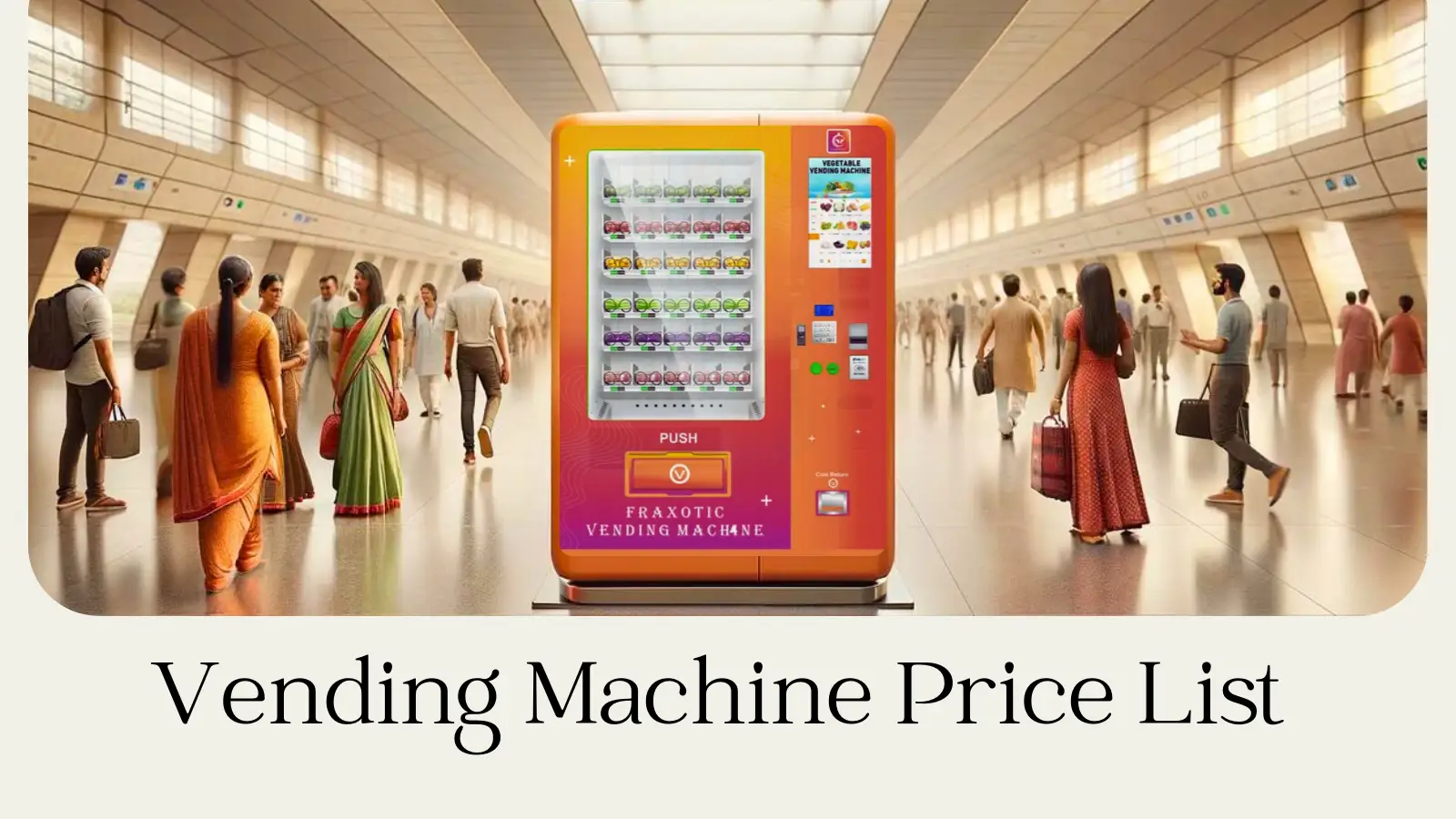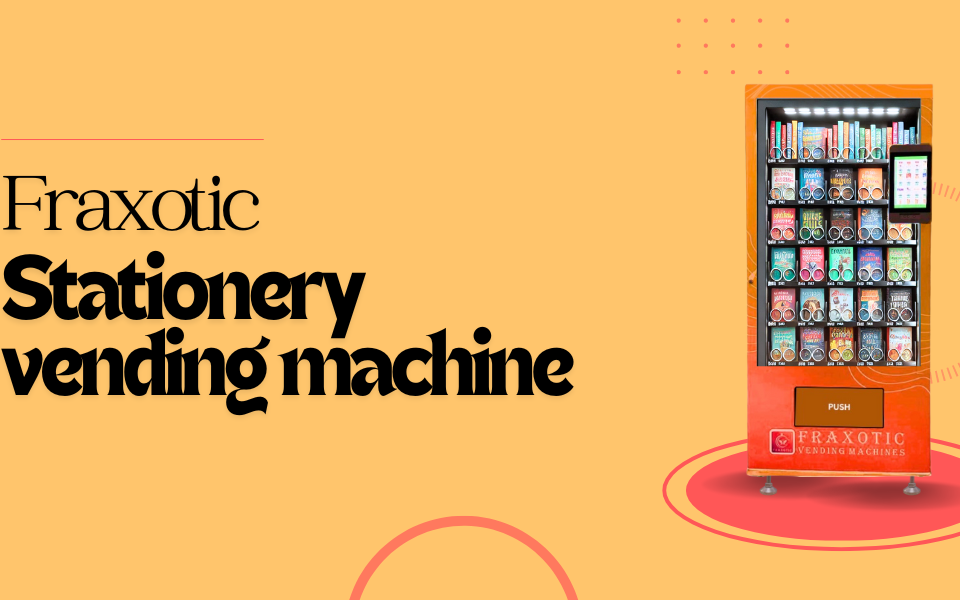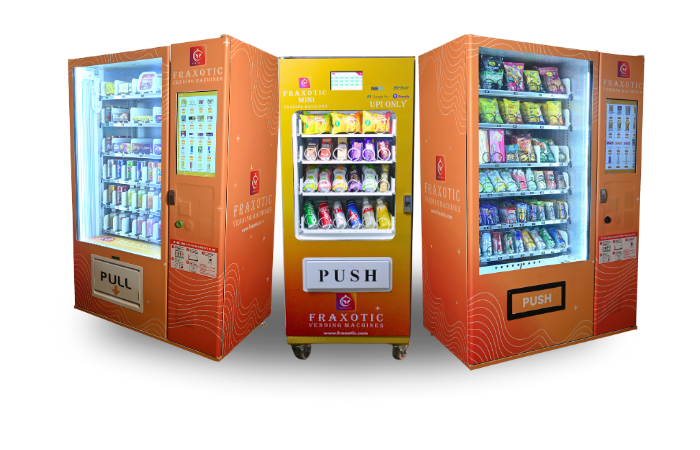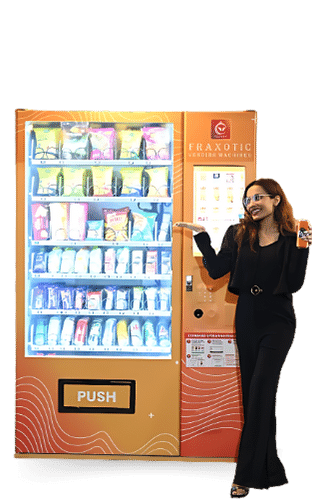
What is the Healthiest Snack in a Vending Machine?
May 13, 2024
How Much Space Does a Vending Machine Need?
May 14, 2024Vending machines have become a staple in global society, embodying ease and accessibility. These automated dispensers have changed the retail scene by delivering a wide array of products effortlessly. From simple origins as snack dispensers, vending machines have evolved into complex units that offer everything from electronics to personal care items. This evolution highlights their adaptability and broad appeal, making them indispensable in our daily lives.
What Are Vending Machines?
At their core, vending machines are automated units that dispense products in exchange for payment, either through cash, cards, or digital transactions. They vary widely, encompassing everything from traditional snack and beverage machines to sophisticated units vending electronics, tickets, and even personal hygiene products. Consequently, this versatility makes them invaluable across various settings, providing essentials at the convenience of a button push.
The Popularity of Vending Machines
Vending machines are particularly popular due to their round-the-clock availability, effectively catering to the needs of a fast-paced world where time is a luxury. This 24/7 accessibility allows individuals to quickly grab necessities without the constraints of traditional store hours, making them especially valuable in emergency situations or late-night cravings. Furthermore, different countries have adopted and adapted vending machines to their cultural and consumer landscapes, leading to a fascinating variety of uses worldwide. This adaptation means that in one country, vending machines might primarily dispense snacks and drinks, while in another, they could offer everything from hot meals to electronics and office supplies. As a result, these machines not only serve basic needs but also reflect and accommodate the diverse preferences and practices of various populations, enhancing their global appeal.
Vending Machines Around the World
Several countries have embraced the vending machine culture, each with its own unique preferences and offerings. Let’s explore some of the leading countries in terms of most vending machines country.
- Japan: The Vending Machine Capital
Japan is at the forefront, with vending machines that are as ubiquitous as they are diverse. Japanese machines are not just confined to urban areas; they also commonly appear in rural regions, offering items ranging from beverages to unique products like fresh eggs or umbrellas, reflecting the country’s innovative approach to automating retail. - United States: A Robust Vending Market
The U.S. hosts a significant number of vending machines, particularly in settings like schools, offices, and public spaces. These machines typically offer snacks, drinks, and increasingly, healthier options like salads and fruit, catering to a growing consumer demand for convenience without compromise on health. - China: Rapid Growth and Innovation
China’s vending machine industry has seen exponential growth, with machines offering a wide array of products including live crabs, fresh vegetables, and mobile phone accessories. This variety underlines China’s rapid industrial innovation and its market’s scalability. - Germany and the United Kingdom: Convenience in Transit
In Germany and the UK, vending machines significantly enhance consumer experiences at transit spots such as train stations and airports, providing quick access to snacks, drinks, and travel essentials. Moreover, the UK market delves into niche offerings like books and artwork, thereby pushing the envelope on what can be sold through automated retail.
Factors Contributing to Vending Machine Popularity
Several factors have contributed to the widespread popularity of vending machines worldwide:
- Convenience and Accessibility: The primary advantage of vending machines is their ability to serve customers anytime and anywhere, which is crucial for accommodating the hectic schedules of the modern populace.
- Diverse Product Offerings: Today’s vending machines cater to a wide array of tastes and preferences, featuring an extensive range of products that go beyond traditional snacks and drinks.
- Technological Integration: Modern vending machines incorporate advanced technology like touchscreen interfaces and cashless payment systems, making them more user-friendly and efficient.
Challenges Faced by Vending Machine Businesses
While vending machines offer numerous benefits, they also come with their fair share of challenges:
- Maintenance and Operational Costs: Regular upkeep and restocking are necessary to keep machines functional and offerings fresh, which can be logistically challenging and costly.
- Market Competition: As the vending machine market grows, differentiating offerings to attract and retain customers becomes increasingly challenging.
- Security Issues: Vandalism and theft remain significant concerns, necessitating robust security measures to protect the machines and their contents.
The Future of Vending Machines
The vending machine industry continues to evolve, promising exciting developments for the future:
- Expansion of Cashless Transactions: Enhancing convenience and security, cashless payments are becoming the norm in vending operations.
- Data-Driven Customization: Future vending machines might leverage consumer data to offer personalized product suggestions, enhancing the user experience.
- Growth in Emerging Markets: As new markets embrace automated retail, there is significant potential for expansion, particularly in regions experiencing rapid urbanization and technological adoption.
Conclusion
Vending machines have indeed transformed from mere conveniences into sophisticated and essential components of contemporary retail, catering to a diverse range of needs across the globe. Japan, a pioneer in this sector, leads this wave of innovation, with nations like the USA, China, Germany, and the UK closely following suit. As technology continues to advance, the capabilities and offerings of vending machines are expected to expand even further. Consequently, this progression promises not only to broaden the horizons of what can be dispensed through these automated systems but also to drive significant developments in the field of automated retail. Therefore, we can anticipate that vending machines will continue to evolve, offering more personalized and varied products, thereby enriching the consumer experience and shaping the future of on-the-go retail.
FAQs
- Are vending machines limited to snacks and drinks?
No, modern vending machines do not limit themselves to just snacks and drinks; they dispense a wide range of items, including electronics, personal care items, and unique products like live crabs or freshly made pizza. - How do cashless payments in vending machines work?
Cashless payments in vending machines utilize advanced technology that allows transactions via smartphones, credit cards, or contactless methods, thus providing a quick and secure transaction process. - What are some unique vending machine products found worldwide?
Interestingly, vending machines globally offer a variety of unique items, including luxury watches, cupcakes, and even car rental services. - How often do vending machines need restocking?
The frequency of restocking vending machines typically depends on the machine’s location and product turnover; consequently, busy areas may require more frequent refills. - Can vending machines be environmentally friendly?
Yes, many vending machines feature energy-efficient systems and biodegradable packaging options, designed with sustainability in mind, thereby actively contributing to environmental conservation.






